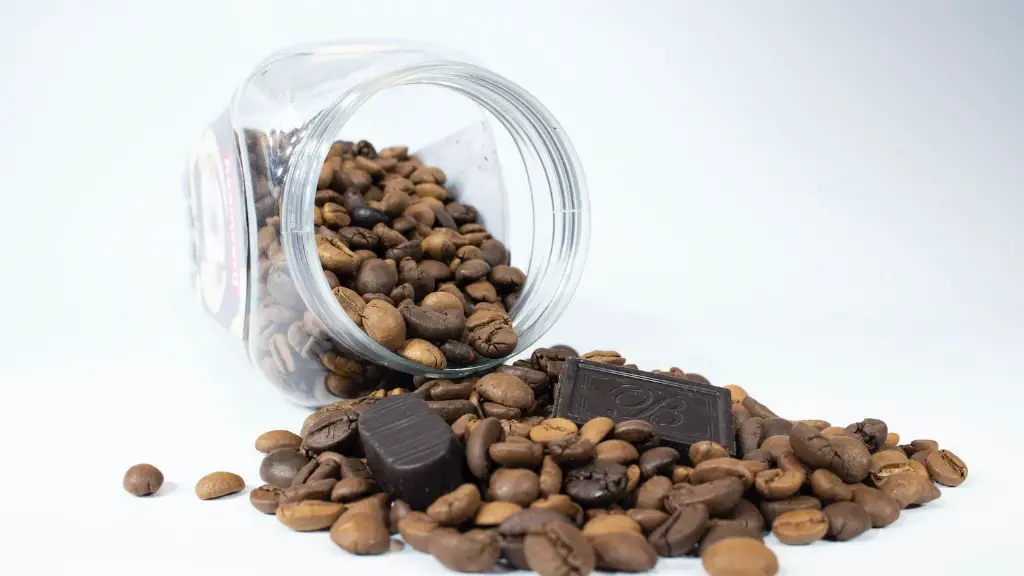Acidic Beverage
Ulcerative colitis is a chronic form of inflammatory bowel disease (IBD) which affects the lower end of the digestive system. This condition can cause ulcers along the mucosal lining of the rectum, colon, and anus, leading to abdominal pain and discomfort. Many patients suffering from ulcerative colitis may find that certain foods and beverages can trigger bouts of abdominal pain and discomfort. One such beverage is coffee. Coffee can be an acidic beverage which many patients may find uncomfortable to drink and difficult to digest if they have ulcerative colitis.
Decaffeinated Coffee
Although coffee is generally considered to be an acidic beverage, decaffeinated coffee is much less acidic than regular coffee. Decaffeinated coffee is made through a water-based extraction process which removes the majority of the caffeine from the coffee beans. As there is much less caffeine present in decaffeinated coffee, the beverage is less acidic and therefore less likely to trigger bouts of irritation or discomfort for individuals with ulcerative colitis.
Health Benefits
Some studies have suggested that drinking decaffeinated coffee can have some health benefits for individuals who suffer from ulcerative colitis. Decaffeinated coffee contains essential vitamins and minerals which can help to reduce inflammation and improve the health of the digestive system. Decaffeinated coffee also contains anti-inflammatory properties which may help to reduce soreness and irritation of the colon and rectum.
Caffeine Consumption
Decaffeinated coffee can still contain some small quantities of caffeine, so it is important to check the product label to make sure that the caffeine content is safe for consumption. Generally speaking, it is advisable for individuals who suffer from ulcerative colitis to limit their consumption of caffeine to no more than 200 milligrams per day, which is usually the equivalent of two to three cups of normal strength coffee.
Experts’ Perspective
According to experts, it is generally safe for patients with ulcerative colitis to consume decaffeinated coffee in moderation. However, it is important to avoid any caffeinated beverages which may cause an increase in abdominal pain and irritation. Additionally, some drinks such as tea and energy drinks may contain high amounts of acid which can trigger symptoms for those with ulcerative colitis.
Alternative Options
If you are looking for an alternative to decaffeinated coffee, there are several other types of beverages which can be consumed in moderation. Some of these include herbal teas, hot chocolate, and decaffeinated green tea which contain nutrients beneficial for ulcerative colitis sufferers. Additionally, decaffeinated dairy products such as yogurt can be beneficial for those with ulcerative colitis, as these products contain probiotics which can help to reduce inflammation in the digestive tract.
Tips for Drinking Coffee
When consuming decaffeinated coffee, it is important to take certain precautions in order to minimize the risk of irritation. Firstly, it is important to drink the beverage slowly in order to prevent abdominal cramps. Secondly, it is advisable to consume the beverage without any additional condiments such as creamer or sugar. Finally, it is important to keep track of your caffeine consumption and avoid consumption of any caffeinated products which may trigger episodes of pain and discomfort.
Exercise & Diet
In addition to taking certain precautions when drinking coffee,it is also important to engage in regular exercise and maintain a healthy diet if you have ulcerative colitis. Regular exercise and a balanced diet can help to reduce inflammation in the body and can also provide significant relief from abdominal pain. Of course, individuals should consult with a physician prior to beginning any new exercise regimen.
Medication
In some cases, individuals with ulcerative colitis may require medication in order to reduce their pain and discomfort. Prescription medications are available which can help to reduce inflammation and promote healing in the digestive tract. Additionally, over-the-counter options are available which can help to reduce inflammation and provide relief from the primary symptoms of ulcerative colitis.
Stress Management
It is also important to manage stress levels if you suffer from ulcerative colitis. Stress can worsen the symptoms of this condition as it can cause the body to produce more inflammatory chemicals. There are several methods which can be used to reduce stress levels, such as relaxation techniques and regular exercises. In addition, avoiding situations which you know will cause stress can also be beneficial.
Holistic Medicine
In addition to traditional medications, some individuals may find relief from their ulcerative colitis through holistic approaches such as acupuncture and meditation. These techniques can help to reduce inflammation and promote balance in the body, which in turn can help to reduce the severity and frequency of ulcerative colitis flare-ups. However, it is important to consult with a licensed practitioner prior to beginning any new holistic treatment.
Alternative Therapies
Finally, there are several alternative therapies which some individuals may find beneficial for the treatment of ulcerative colitis. Herbal remedies, healing oils, and probiotics can all help to reduce inflammation and improve the overall digestive health. Additionally, certain vitamins and minerals can be beneficial for individuals with ulcerative colitis, although it is important to consult with a physician before taking any new supplements.



